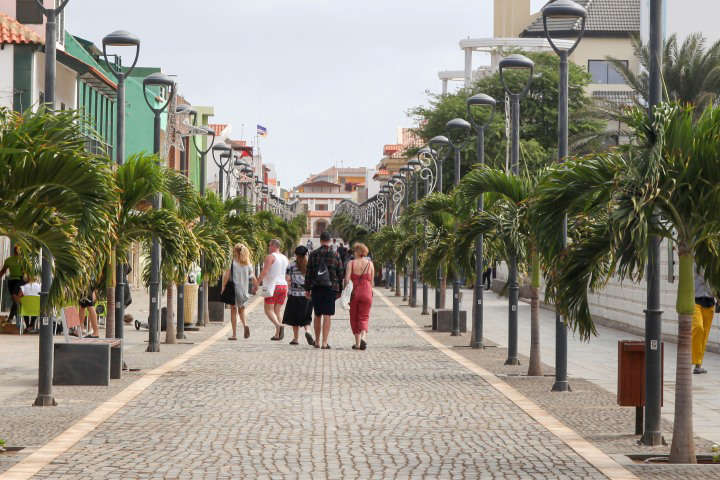The Cape Verdean economy has fully recovered from the fall caused by the 2020 Covid-19 pandemic, revised upwards by the INE, with the Gross Domestic Product (GDP) growing 17.7% last year, driven by tourism.
According to data from the Quarterly Accounts of the National Institute of Statistics (INE) compiled today by Lusa, the performance of the Cape Verdean economy in 2022, added to the growth of 6.8% of GDP in 2021, allowed canceling the recession of 19.3% in 2020.
This recession was also revised upwards in the INE document, compared to the 14.8% previously announced.

On average, between 2019 and 2022, the Cape Verdean economy grew by 3.2%, despite the historic recession in 2020, according to the still provisional data from INE.
In 2022, the lodging and restaurant sector soared nearly 265% from the previous year, which was then down -21.4%, as was 2020, by -61%.
In 2019, before the effects of the covid-19 pandemic on tourism, the sector had grown by 6.5% compared to 2018, according to INE’s history.
Tourism guarantees about 25% of Cape Verde’s GDP and employment.
Investment fell 31.8% in 2022, private consumption grew 28.3%, and consumption by the state lost 7% compared to 2021.
The INE data also surpasses the last growth forecast made by the Cape Verdean government – which over 2022 even revised downwards, to 4%, due to the effects of the war in Ukraine – which in late January pointed to up to 15%, despite the inflationary crisis of recent months.
“In a difficult crisis context, the economy will grow in 2022 between 12 and 15%.”
“The inflation forecast for this year 2023, at 3.7%, is consistent with the forecasts of easing inflation worldwide, although it remains high compared to the periods before the war in Ukraine,” said the Prime Minister, Ulisses Correia e Silva, on January 27 in parliament.
The head of Government recalled that Cape Verde went from an inflation rate of 1.9% in 2021 to 7.9% in 2022, conditioned by price increases in Portugal and the Euro Zone, the archipelago’s main economic relationships.
“We have implemented financial, fiscal, and regulatory measures to mitigate the effects of imported inflation that strongly affected the prices of fuel, electricity, and basic necessities, grains.”
“The inflation caused, in Cape Verde, an increase in the cost of energy products by €19 million.”
“An enormous external shock, aggravated by the euro’s devaluation against the dollar in 2022.”
“Due to the measures taken by the Government, only 20% of this shock was transmitted to the consumers.”
“The State, directly and indirectly, absorbed 80% of the shock,” stressed the Prime Minister before the parliamentarians.
He added that if the Government did not implement the measures, the prices of butane gas, gasoline, diesel, and electricity “would have had much higher increases than those registered,” such as in butane gas, whose price did not rise beyond what was in force in February 2022, before the war began.
“Without the measures, the value of the electricity tariff in the second bracket, which covers most domestic consumers, would be 67% above the pre-war value.”
“It has increased by 15%. Without the measures, the social electricity tariff would have had a 157% increase. It did not increase,” the head of the Government insisted at the time.
With information from Lusa

